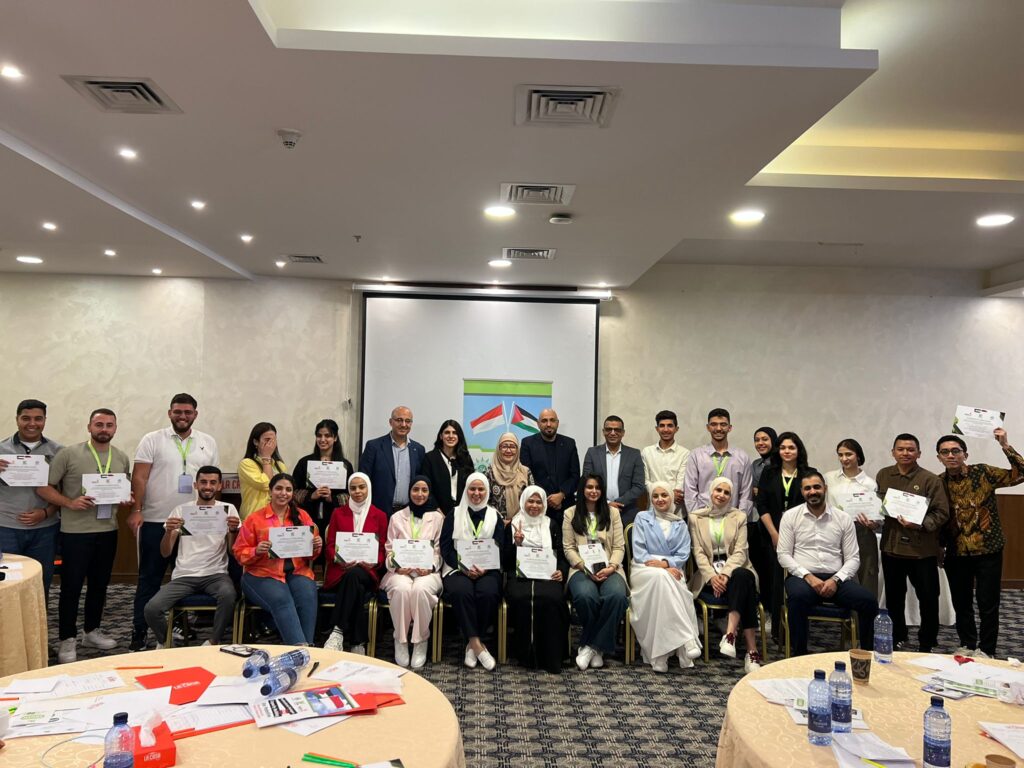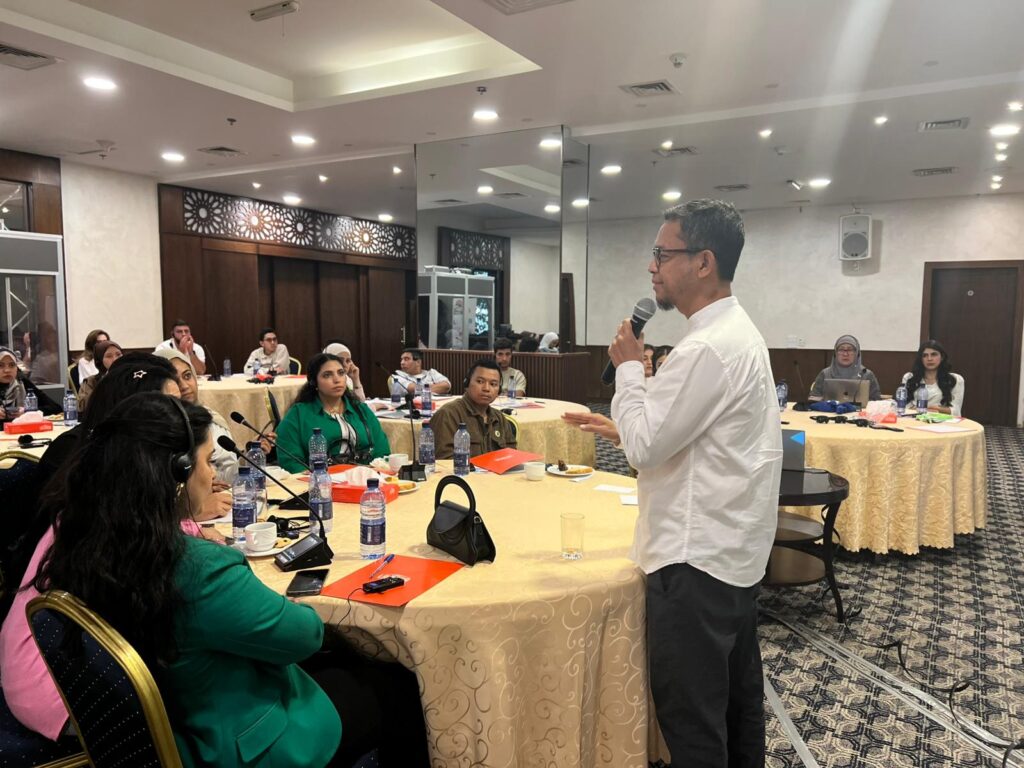Witness Center Implements the Final Activity of the Peace Building LAB Project in Amman, Jordan

The Witness Center for Citizen Rights and Social Development, with the support of Muhammadiyah in Indonesia and funding from Lazismu, concluded its Peace Building LAB project by implementing the final activity: a training on intercultural dialogue and conflict management. The training was held in Amman, Jordan, from September 10–14, 2025, with the participation of trainees from Palestine, Jordan, and Indonesia.
The event was attended by Yayah Khisbiyah, the Chairperson of Muhammadiyah Agency for International Development (MuAID), and Secretary of Department for International Relations and Cooperation; Yasmi Ardiansyah, Vice Chair of the Relations Board of Muhammadiyah; Ahmad Imam, Chair of Lazismu; and Adeeb Rashid, Officer for Palestinian Affairs at the Organization of Islamic Cooperation.
In her remarks, Yayah Khisbiyah emphasized the importance of such programs in supporting the resilience of Palestinian youth and strengthening dialogue among them, adding that she seeks to contribute through all possible means.
Yasmi Ardiansyah stated that the program aims to build the capacities of Palestinian youth as part of Muhammadiyah’s efforts to provide more meaningful and effective support. He pointed to the necessity of reinforcing solidarity and encouraging Palestinians to remain steadfast and cooperative while drawing on Indonesia’s experience. He said: “Of course, the challenges faced by our brothers and sisters in Palestine are extremely difficult. But at least there is something we can contribute… We can also provide support for capacity building and human resource development, especially for youth.”

For his part, Ahmad Imam expressed his hope that this program would establish a foundation for rapprochement and harmony among the Palestinian people, stressing that Palestinian independence has indeed been built on unity across its diverse political and social components. He added: “We hope this program will be useful and a lesson for all of us to always preserve our unity.”
The training featured specialized sessions:
Nimala Kharoufeh delivered a workshop on intercultural dialogue and its vital role in fostering mutual understanding and reducing prejudice. She highlighted the core principles it relies on—respect, openness, active listening, and empathy—as essential tools to promote peaceful coexistence.
Mohammad Abisi conducted training on conflict management, which covered the nature, causes, and importance of conflicts in human relationships, along with case studies. The session explored different conflict management styles (turtle, shark, bear, fox, and owl) and applied structured methodologies for analyzing personal situations. It also included practical strategies such as stress-reduction techniques, “I-messages,” examining the role of emotions and behaviors, and applying acquired skills to real-life cases or simulations, with time dedicated to reflection and future planning in conflict management.
Mohammad Qudah delivered a session on hate speech, explaining the difference between hate speech and freedom of expression and presenting mechanisms for addressing it.
Additional lectures included a session by Yayah Khisbiyah and Adeeb Rashid on intercultural and interfaith dialogue in the Islamic world, focusing on the importance of fostering understanding and building bridges of communication. And the second session, titled Islamic Solidarity with Palestine and Strengthening the Resilience of the Palestinian People in Gaza and the West Bank, presented by Yasmi Ardiansyah, Adeeb Rashid, and Ghazi Murtaja, addressed the role of solidarity in supporting Palestinians and enhancing their resilience.
The training concluded with the distribution of certificates to participants and words of thanks to the Indonesian delegation, Muhammadiyah, and Lazismu for their continuous support aimed at strengthening the resilience of the Palestinian people.